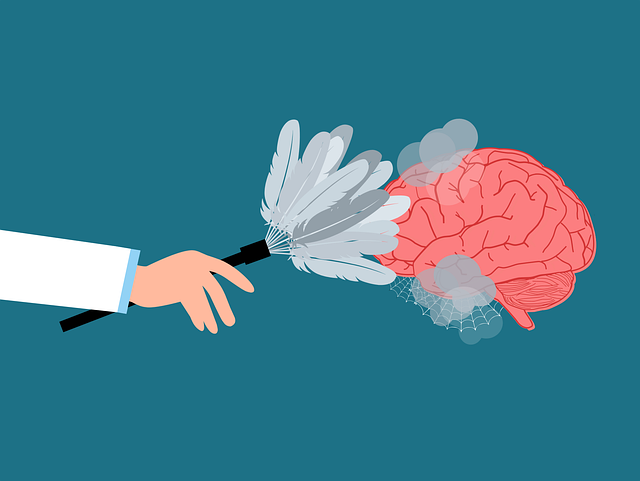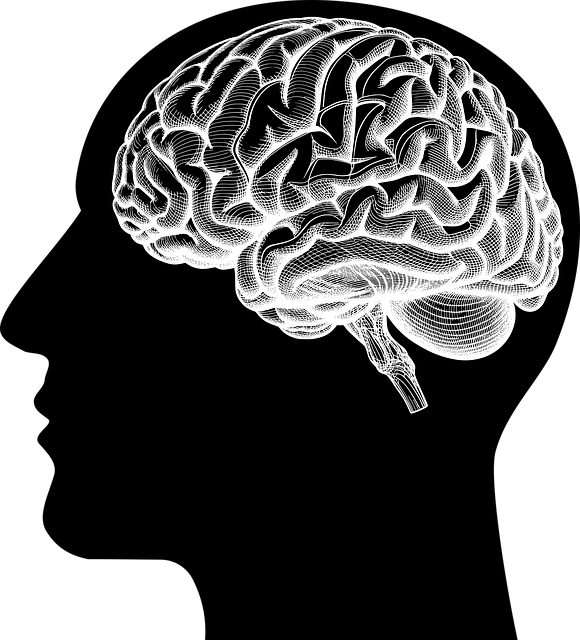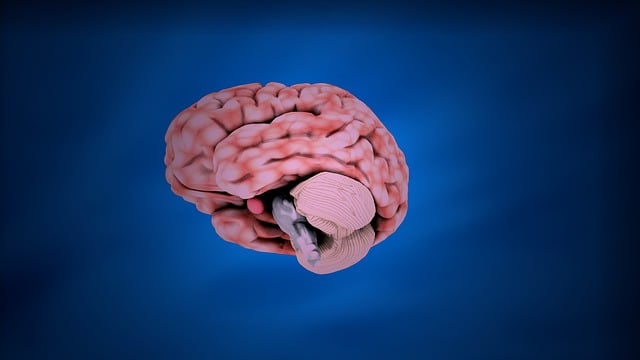Crisis Intervention Teams (CITs) at Littleton Anxiety Therapy provide immediate support during mental health emergencies using collaborative practices and mindfulness meditation. They teach effective crisis management strategies, focusing on anxiety reduction through evidence-based techniques like deep breathing and cognitive reframing. These programs, which include mental illness stigma reduction, equip professionals with skills for crisis assessment, de-escalation, and risk management. Comprehensive training enhances client outcomes by normalizing anxiety discussions and promoting self-care routines, ultimately building trust in diverse settings while overcoming challenges through tailored, flexible sessions.
In today’s complex social landscape, effective crisis intervention is more critical than ever. This article explores the vital role of Crisis Intervention Teams (CITS) in managing high-stress situations, with a particular focus on the impact of programs like Littleton Anxiety Therapy. We delve into the key components and practical skills these training programs offer, while also highlighting benefits and challenges associated with their implementation. Understanding these elements is crucial for enhancing community safety and well-being.
- Understanding Crisis Intervention Teams: Their Role and Importance
- The Impact of Littleton Anxiety Therapy on Crisis Response
- Key Components of Effective Crisis Intervention Training Programs
- Practical Skills and Techniques Taught in These Programs
- Benefits and Challenges of Implementing Comprehensive Training
Understanding Crisis Intervention Teams: Their Role and Importance

Crisis Intervention Teams (CITs) are specialized groups of professionals dedicated to providing immediate and effective support during times of crisis. These teams play a pivotal role in communities, particularly in addressing mental health emergencies. At Littleton Anxiety Therapy, our CIT training programs empower individuals to recognize and respond to distressing situations with compassion and expertise.
The primary function of these teams is to offer rapid intervention, de-escalation techniques, and crisis stabilization services. By fostering a collaborative environment, CITs bring together various healthcare professionals, such as psychologists, social workers, and first responders, who work cohesively to assess and meet the unique needs of individuals in crisis. This integrated approach ensures that those facing mental health challenges receive comprehensive support tailored to their specific circumstances. Moreover, community outreach program implementation, coupled with practices like mindfulness meditation and self-care, enhances the team’s ability to effectively manage crises and promote long-term well-being.
The Impact of Littleton Anxiety Therapy on Crisis Response

Littleton Anxiety Therapy has emerged as a game-changer in crisis intervention training programs. This innovative approach focuses on equipping individuals with effective strategies to manage and reduce anxiety during high-pressure situations, significantly enhancing their ability to respond to crises. By integrating evidence-based techniques such as stress reduction methods and inner strength development, Littleton Anxiety Therapy empowers participants to navigate challenging scenarios with composure and clarity.
In the context of Mental Health Policy Analysis and Advocacy, this therapy’s impact extends beyond individual response. It promotes a more holistic understanding of crisis management, encouraging advocates to consider anxiety as a critical factor in policy formulation. This perspective fosters more comprehensive strategies that address the underlying causes of crises, rather than merely treating symptoms. Through rigorous training, professionals gain the confidence to advocate for policies that prioritize mental health support and early intervention, ultimately contributing to a society better equipped to handle collective and individual crises.
Key Components of Effective Crisis Intervention Training Programs

Effective crisis intervention team training programs are multifaceted, aiming to equip participants with a comprehensive skill set for managing high-stress situations. Firstly, they focus on Littleton Anxiety Therapy techniques, teaching professionals how to recognize and reduce anxiety in individuals facing crises. This involves strategies such as deep breathing exercises, progressive muscle relaxation, and cognitive reframing, which have been proven effective in calming minds and fostering clear thinking during stressful events.
Secondly, these programs emphasize Mindfulness Meditation as a tool for both personal and collective resilience. By promoting present-moment awareness, mindfulness meditation helps individuals manage their own stress responses while also cultivating empathy and patience when interacting with others in crisis. Additionally, training should incorporate Mental Illness Stigma Reduction Efforts, fostering an environment where participants feel comfortable addressing diverse mental health challenges without prejudice. Encouraging positive thinking and open communication is integral to creating a supportive atmosphere where everyone feels heard and respected.
Practical Skills and Techniques Taught in These Programs

Crisis intervention team training programs equip participants with a wide array of practical skills and techniques to effectively manage mental health crises. These include crisis assessment, active listening, de-escalation strategies, and communication tactics tailored for high-stress situations. Trainees learn how to recognize early signs of distress and implement immediate interventions that can prevent escalation.
A key component often taught in these programs is risk management planning, which involves developing strategies for both personal self-care and managing risks within the community. This includes integrating public awareness campaigns on mental health into their approach, fostering a culture where discussions about anxiety and other mental health issues are normalized. Additionally, participants gain proficiency in creating individualized safety plans and promoting Self-Care Routine Development to enhance resilience among individuals at risk.
Benefits and Challenges of Implementing Comprehensive Training

Implementing comprehensive training for crisis intervention teams offers a multitude of benefits. It equips professionals with the necessary tools to recognize and respond effectively during critical situations, ultimately enhancing client outcomes. Through role-playing scenarios, simulations, and evidence-based practices, team members learn valuable communication strategies that foster better connections and build trust with individuals in distress, including those experiencing anxiety. Such training also promotes a collective understanding of crisis intervention guidelines, ensuring consistency and coherence in care delivery across different settings, such as schools, workplaces, or community centers.
Despite these advantages, challenges arise when instituting thorough training programs. Cost considerations, time constraints, and scheduling conflicts can hinder organizations from providing the level of training needed. Additionally, keeping up with evolving crisis intervention guidelines and incorporating innovative communication strategies requires continuous effort and resources. For instance, Littleton Anxiety Therapy has navigated these obstacles by offering flexible training sessions tailored to diverse schedules while staying current with evidence-based practices aimed at delivering anxiety relief.
Crisis intervention team training programs, such as those inspired by the Littleton Anxiety Therapy model, play a vital role in equipping professionals to handle mental health crises effectively. By focusing on key components like de-escalation techniques and communication skills, these programs empower teams to provide timely and compassionate support. While implementing comprehensive training presents challenges, the benefits are clear: improved crisis response, enhanced safety for both individuals in distress and interveners, and a more resilient community equipped to navigate mental health emergencies.














